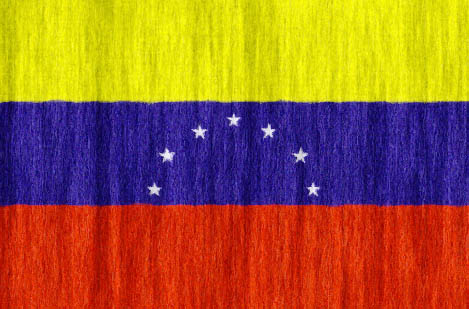AFP
|
|
Venezuela’s judiciary is cracking down on students and dissidents while allowing nine out of ten other crimes, including thousands of murders, to go unpunished, an international watchdog said.
Some 1,500 students are facing prosecution over the massive protests that rocked the country for four months, including 160 who are still in prison, the International Commission of Jurists (ICJ) said in a report.
At least 42 people were killed when opponents of President Nicolas Maduro took to the streets in February to protest rampant crime, runaway inflation and shortages of basic goods in the country with the world’s largest proven oil reserves.
Judges and prosecutors, under heavy political pressure, have made little progress in investigating the deaths or allegations of the torture of demonstrators, the ICJ said.
And they have turned a blind eye to surging crime rates in Venezuela - including some 15,000 murders in the last year alone, the ICJ said, pointing out that instead the judiciary had cracked down on dissidents.
“A robustly independent judiciary, prosecutorial service, and legal profession are needed now more than ever to protect people’s rights in a democratic state,” said the ICJ’s secretary general Wilder Tayler.
“Without them, respect for the rule of law and for human rights quickly goes into a downward spiral,” he added in a statement.
A judge in Caracas ruled on Thursday that opposition leader Leopoldo Lopez would have to stand trial on charges of instigating violence at an anti-government demonstration in February.
The 43-year-old, Harvard-educated economist who leads the opposition Popular Will party, is being held at a military jail on the outskirts of Caracas as a self-proclaimed “political prisoner” and “prisoner of conscience”.
“This is only one example of how the judiciary as a whole is being used against politicians and dissidents,” ICJ commissioner Carlos Ayala told reporters in Geneva.
The case is “an example of how dangerous it is for democracy and the rule of law (to use) the judiciary to persecute political dissidents,” he said.
Maduro has likened the protests to a coup designed to oust him ever since he succeeded late firebrand leader Hugo Chavez, blaming the US for masterminding them.
Washington has dismissed the allegations.
The lack of independence in the judiciary helped spark the demonstrations and is contributing to the harsh treatment of the protesters, the ICJ said.
Venezuela’s judiciary “is seriously threatened,” and this is undermining democracy and rule of law in the country, said the report. “Venezuela is currently a kind of laboratory on the... effect of the lack of a reliable justice system,” said ICJ honorary member Pedro Nikken.
Even before the protests, more than 4,000 demonstrators, union leaders and other dissidents were being prosecuted in Venezuela in 2013, the ICJ said.
The body argues that the government’s hold over Venezuela’s nearly 2,000 judges and around 1,500 prosecutors - who can be easily dismissed and replaced if they cross the government as most do not have tenure - is a key reason why justice is failing.
Judges who have reached unpopular rulings have also been imprisoned, like Maria Afiuni, who was jailed in 2009 with a number of women she herself had sentenced. She was raped in prison, and her case created the so-called ‘Afiuni effect,’ a chilling effect on judges,” Ayala said. “Every judge can see themselves in that mirror.”

